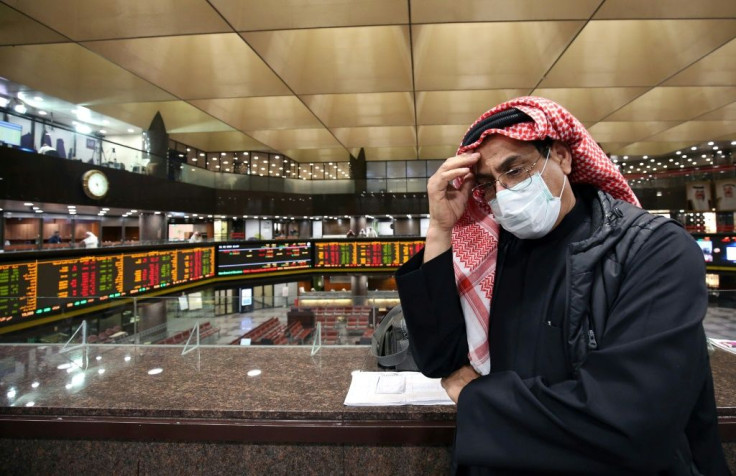Saudi Stocks Lead Gulf Bourses Down After Oil Slump

The Saudi stock market led Gulf bourses down on Tuesday, a day after US oil prices slumped to historic lows over sluggish demand, a supply glut and a lack of storage.
The Saudi Tadawul stock market, the largest in the Arab world, was 1.6 percent lower at the close.
Energy giant Saudi Aramco dropped 2.0 percent to stay well below its listing price of 32 riyals ($8.5) per share.
The Dubai Financial Market dipped 3.3 percent, while its sister bourse in Abu Dhabi was down 2.7 percent. Qatar's bourse lost 1.4 percent.
In Kuwait, the Premier index slumped 2.6 percent while the All-Shares index was down 1.9 percent at the close.
The small Muscat bourse shed 1.2 percent while Bahrain stocks finished 0.4 percent lower.
All seven bourses in the Gulf Cooperation Council (GCC) states have sustained heavy losses since the outbreak of the coronavirus and sharp declines in oil prices.
Most of them made a partial comeback in April but remained way below last year's finish.
US crude prices made a partial recovery on Tuesday after trading at historic lows, diving well below zero the previous day for the first time due to paralysed demand and a glut that overwhelmed storage facilities.
The international benchmark Brent crude dropped below $19 a barrel on Tuesday, for the first time in two decades, before making a slight recovery.
West Texas Intermediate for May delivery was trading at -$9.20 a barrel.
All the Gulf states depend on oil income for most of their public revenues.
The International Monetary Fund last week projected the Gulf states along with oil exporters in the Middle East and North Africa will lose more than $230 billion in oil revenues after oil prices dropped by more than 60 percent this year.
The global lender also forecast that economies of the Gulf states will shrink by 2.7 percent, their worst performance in several decades.
© Copyright AFP 2024. All rights reserved.




















